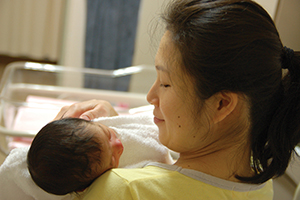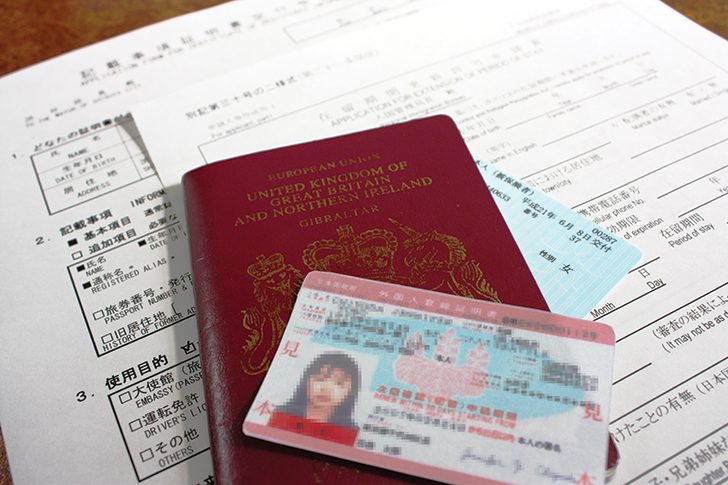 Worst-case scenario: You have been legally working in Japan and paying into a private insurance program. The coverage is minimal but you like the low premiums. April 2010 arrives and it is time to renew your working visa. A new immigration guideline now stipulates that you must show proof of being enrolled in one of the two national health insurance programs, or your visa application may be rejected. What should you do?
Worst-case scenario: You have been legally working in Japan and paying into a private insurance program. The coverage is minimal but you like the low premiums. April 2010 arrives and it is time to renew your working visa. A new immigration guideline now stipulates that you must show proof of being enrolled in one of the two national health insurance programs, or your visa application may be rejected. What should you do?
First of all, this is not a new law. Japanese law has always required that everyone living in Japan, regardless of citizenship, be enrolled in one of the two government run health insurance programs: the employer-subsidized Employees’ Social Health Insurance (shakai hoken) or the National Health Insurance (kokumin hoken). However, up until now, it was simply not enforced.
Why now, you may wonder. The answer is not particularly clear. This new guideline is just one of the hundreds of clauses in a huge reform package dubbed the “Three Year Program for Promoting Regulatory Reform” released in January 2007. The mandate of the program states: “deepening and active promotion of regulatory reform is a key to solve important problems our society faces.” It is important to place this new immigration guideline in the proper context. It is not sparked by any controversy nor is it on the political agenda of anyone with power. It is merely one recommendation put out by a largely anonymous political committee.
This background explains why when I called the Immigration Bureau asking for more specific details, everyone seemed exasperated and obviously annoyed. I got the sense that they wish this new guideline would just disappear. It seems as though they’ve received very few directives on whether they have to actually deny foreigners visa renewals if they are not enrolled in the national healthcare program. The spokesperson simply reiterated the official wording of the guidelines: “We strongly encourage everyone to abide by these guidelines.”
In contrast to the vagueness at the Immigration Bureau, the Social Insurance Agency seems to have no qualms about enforcing the rulebook. If you have not been enrolled in a public health insurance program and now want in, you will have to pay up to two years of back payments. Already there is one documented case where an assistant language teacher decided to enter the national health insurance system after being in a private program and had to fork over ¥700,000 in back payment. About the only negotiation the Social Insurance Agency is willing to conduct is determining the amount of your installments.
This new guideline has sparked an organized movement to recognize the role of private insurance. Free Choice is an organization petitioning the Japanese government to grant non-Japanese residents the right to choose their own health care plan, whether it is a public or a private plan. The organization points out that foreigners living in Tokyo have intrinsically different health needs than Japanese citizens. International clinics in Tokyo have English-speaking doctors who often only take private insurance plans. Private plans also address specific concerns of foreign residents such as the repatriation of a person’s remains in the case of death.
A private insurance plan is the preferred plan for young, healthy people living in areas with international clinics and not planning to live in Japan long-term. However, if you live in rural areas where medical practitioners are unfamiliar with private policies, have a pre-existing condition or plan to live here long-term, the national health insurance system is probably the wiser choice. If you have to make claims often, those on private plans sometimes complain about hassles over getting authorization, having to pay for services up front, and then doing all the paperwork to complete a claim.
 A private insurance plan is not right for everyone, but expatriates should have the right to choose, just as they have the right to decide how their children are educated. While it is mandatory that Japanese children attend a school recognized by the Ministry of Education, children with foreign citizenship are able to attend international schools that are not recognized by the ministry.
A private insurance plan is not right for everyone, but expatriates should have the right to choose, just as they have the right to decide how their children are educated. While it is mandatory that Japanese children attend a school recognized by the Ministry of Education, children with foreign citizenship are able to attend international schools that are not recognized by the ministry.
In the case of education, the government recognizes that the foreign community has needs that are not met by the Japanese public system. If enough evidence is presented, I believe the Japanese government would agree to give foreign workers the option of a private health plan.
History has shown that organized, systematic protest has resulted in positive changes for the international community. For example, before 1985, only children of Japanese men were given Japanese citizenship. Revision in the Japanese Nationality Law that year made it possible for a child with a Japanese mother and a foreign father to have Japanese citizenship. Until then, children living in Japan under these circumstances were simply considered “stateless.”
Then, before November 1994, foreigners who paid into the national pension got nothing back unless they worked in Japan for over 25 years. However, as more foreign workers voiced their objection, a committee of Japanese scholars and company managers advised the Ministry of Health and Welfare, paving way for an amendment to give foreign workers a lump sum pension return when they leave Japan.
But being on a private insurance policy can backfire on people who end up staying in Japan long-term and develop some chronic illness. They may find themselves wanting to enter the national system because private policies may not cover certain conditions or demand sky-high premiums. If the logic is that a private insurance policy serves the specific needs of foreigners when they are young and healthy, then they should remain on that plan when health problems develop. With education, parents sign a document “forfeiting” the right to Japanese public schooling if they opt to enroll their children in an international school. An amendment for foreigners to legally choose private health insurance plans will no doubt make it very difficult for them to enter a public plan at a later date.
If you know your stay in Japan is short-term, private insurance is clearly the better option for you and its official recognition will ease any legal ambiguity. But if you are leaning towards a long-term commitment to Japan, this should be your catalyst to enter the national system.
Story by Carol Hui
From J SELECT Magazine, January 2010















Recent Comments